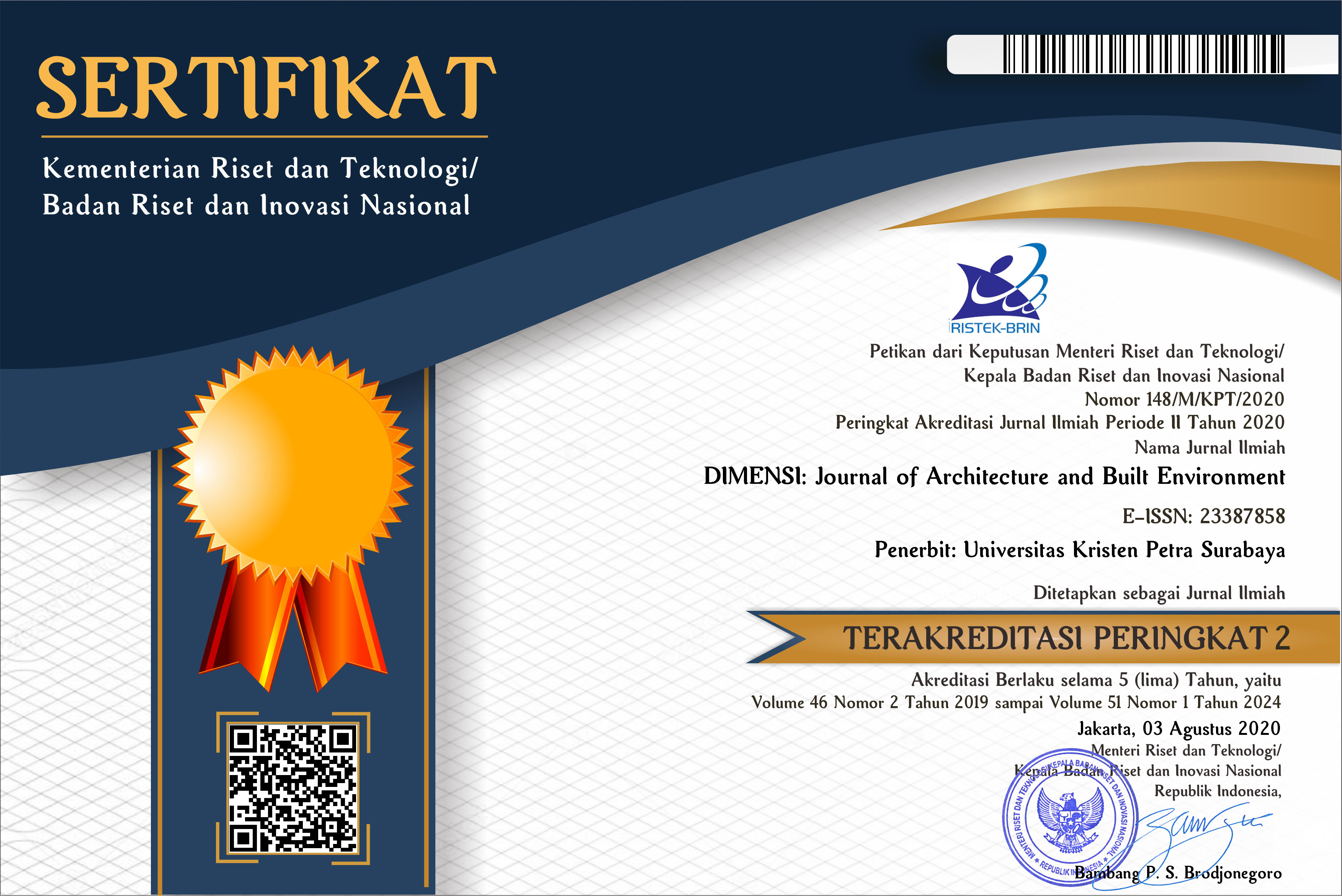FENG SHUI IN MODERN HOUSE DESIGN SEARCHING FOR THE RATIONALE AND POSSIBLE IMPACTS ASSESSMENT
 :
:
https://doi.org/10.9744/dimensi.41.1.43-50
Keywords:
Feng Shui, functionality, rationale, sustainable architectural designAbstract
The Feng Shui, the "wind-water", is a Chinese system of geomancy using the laws of both Heaven and Earth for harmony and balance of life with the positive qi. Feng Shui is widely used to orient temples, palaces, shops, houses, and other structures, with the reference to local features such as bodies of water, stars, or a compass. The Feng Shui also informs the physical arrangements for manipulation and channeling the qi (positive or negative energy). Although Feng Shui is related to traditional believe and propitious manner, but some of its principles are rational. The current research is conducted to investigate any positive impacts of the Feng Shui application in modern house design. A house in Jakarta designed with Feng Shui was analyzed. The strategies were later examined based on the sustainable architectural design principles, especially its impact on the house functionality.Downloads
Download data is not yet available.
Downloads
Published
2014-07-01
How to Cite
Linda, O., & Tanuwidjaja, G. (2014). FENG SHUI IN MODERN HOUSE DESIGN SEARCHING FOR THE RATIONALE AND POSSIBLE IMPACTS ASSESSMENT. Dimensi: Journal of Architecture and Built Environment, 41(1), 43-50. https://doi.org/10.9744/dimensi.41.1.43-50
Issue
Section
Articles
License
Authors who publish with this journal agree to the following terms:
- Authors retain copyright and grant the journal right of first publication with the work simultaneously licensed under a Creative Commons Attribution License that allows others to share the work with an acknowledgement of the work's authorship and initial publication in this journal.
- Authors are able to enter into separate, additional contractual arrangements for the non-exclusive distribution of the journal's published version of the work (e.g., post it to an institutional repository or publish it in a book), with an acknowledgement of its initial publication in this journal.
- Authors are permitted and encouraged to post their work online (e.g., in institutional repositories or on their website) prior to and during the submission process, as it can lead to productive exchanges, as well as earlier and greater citation of published work (See The Effect of Open Access).

















